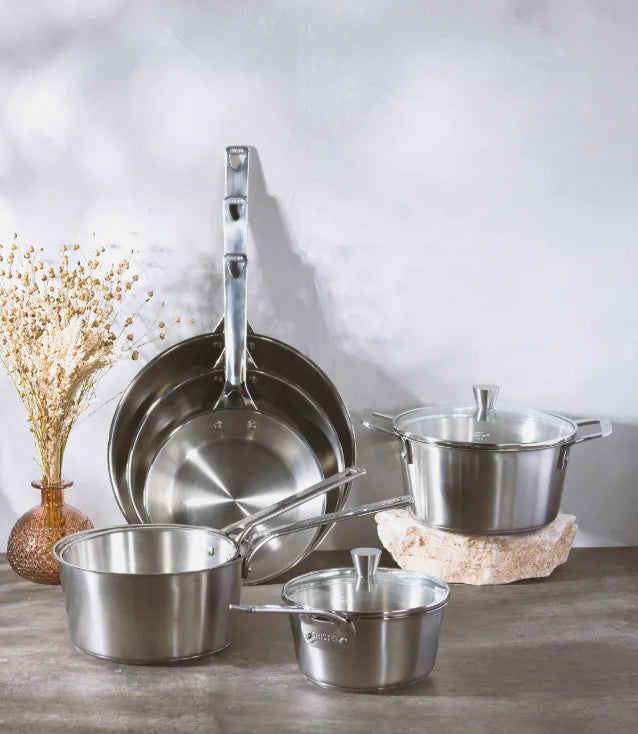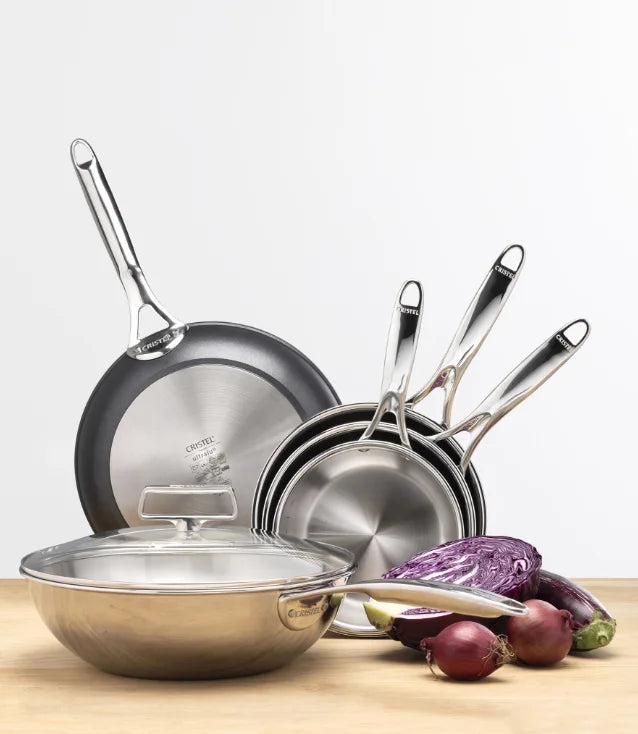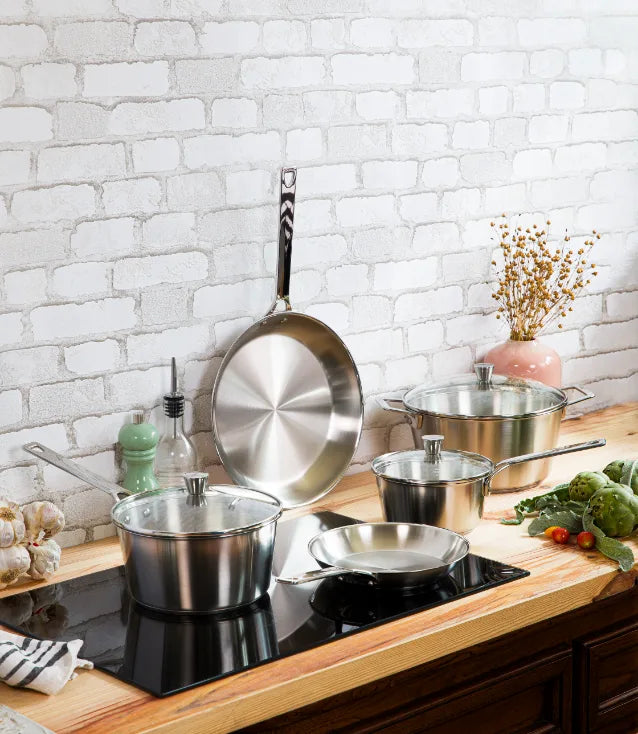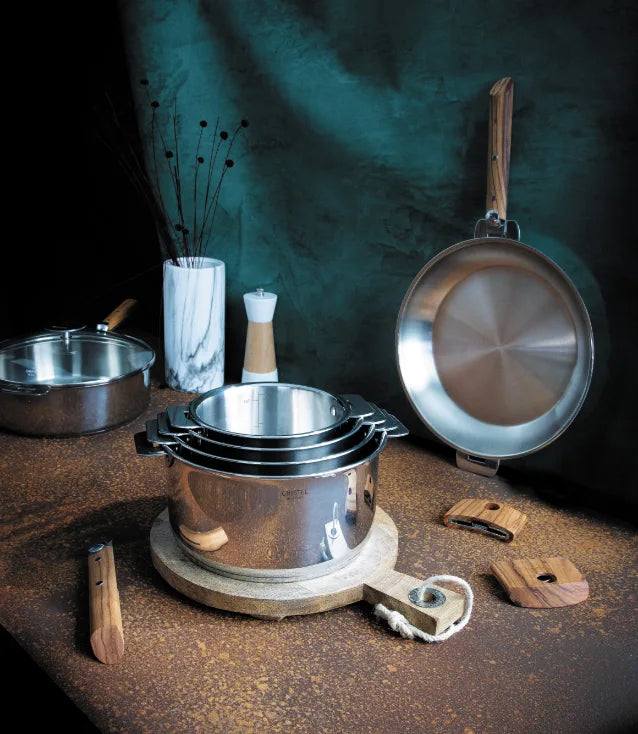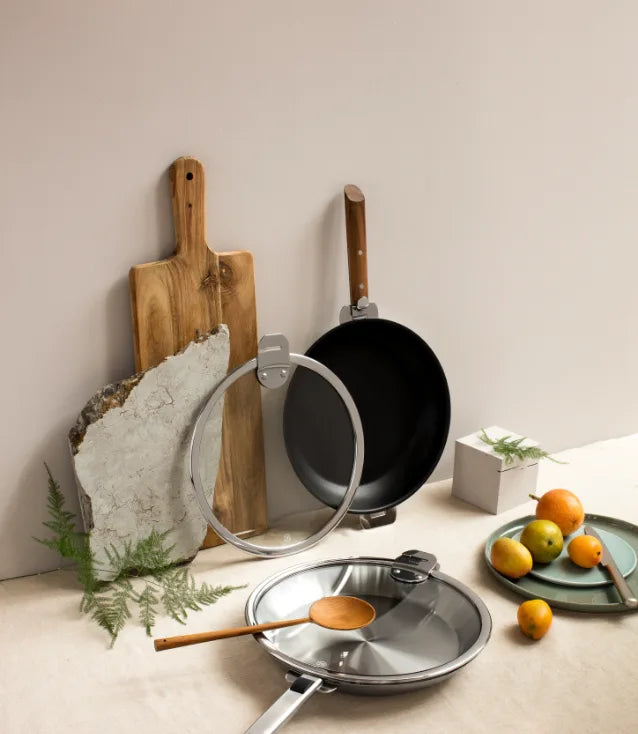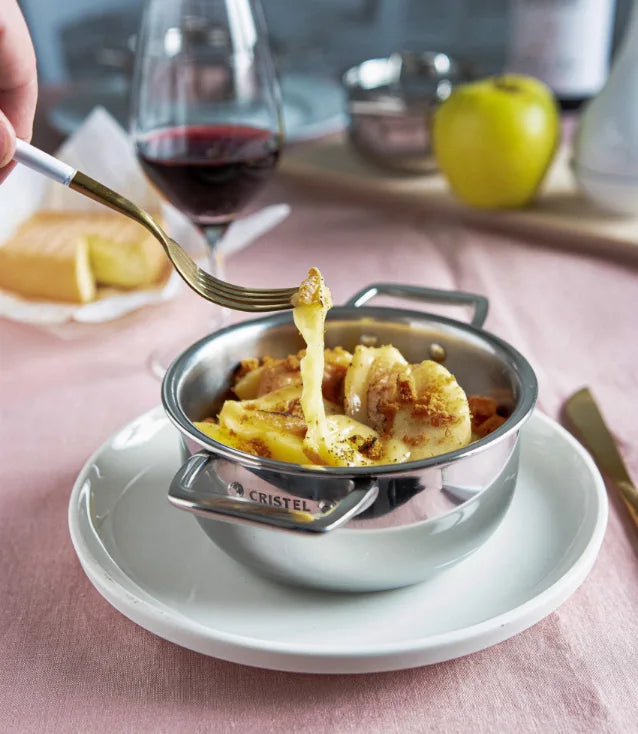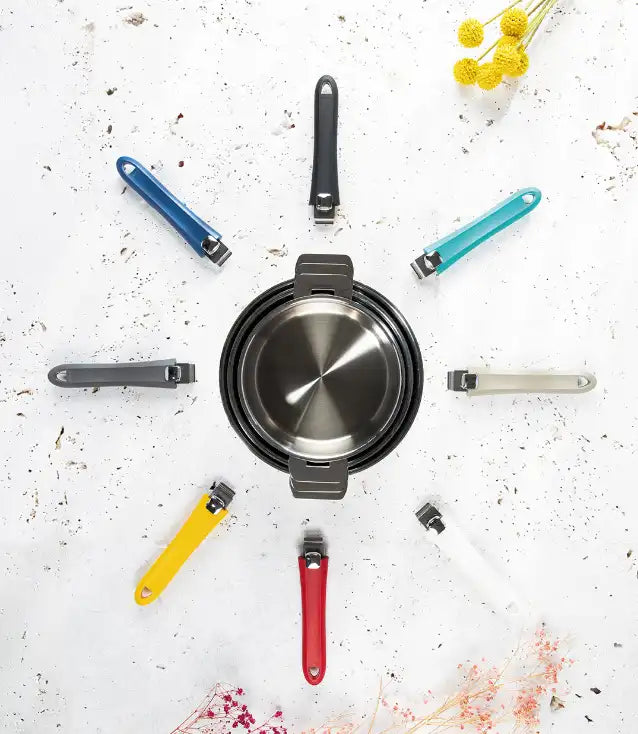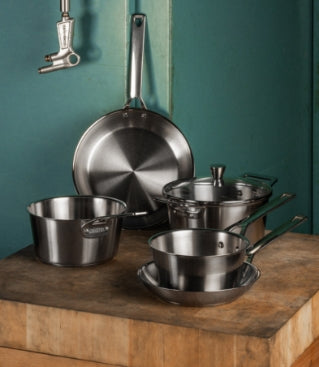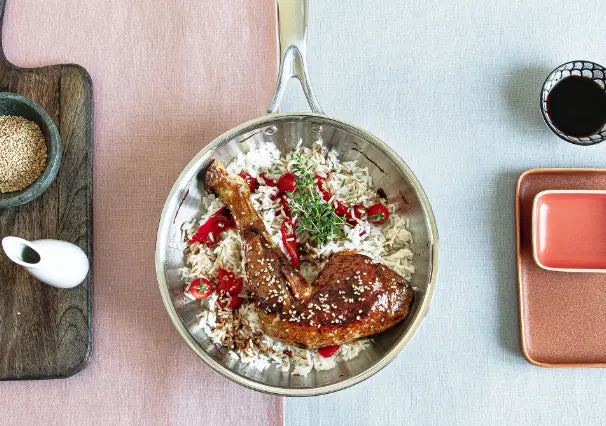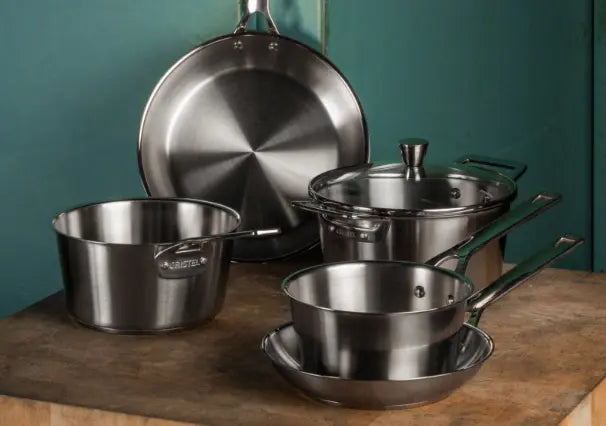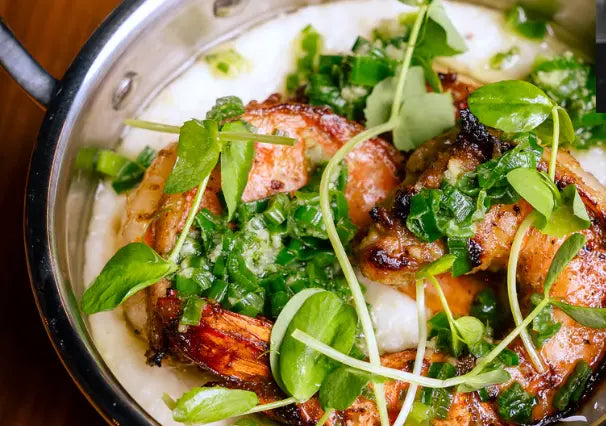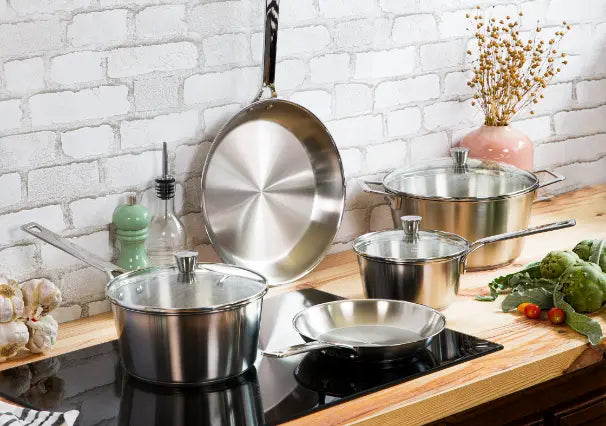COOKWARE TO LAST A LIFETIME
The first step is to take a look at what you use to cook, rather than what you actually cook. If you have tired old pots and pans that could do with an upgrade, consider replacing them with superior quality cookware that will stand the test of time.
Although stainless steel cookware can be a little expensive, it will be profitable in the long run, both for your wallet and the environment, as you won’t be replacing your cheaper ones over and over again as the years go by. Consider that the purchase of quality, guaranteed cookware as a worthy lifelong investment!

CUT DOWN ON OIL CONSUMPTION
Once you have your cookware sorted, we can move onto discuss how to cook more ecologically with your actual ingredients. Something you may not have thought of is the very first step in many dishes – adding oil or butter to the pan before anything else goes in it.
With quality non-stick coatings, you won’t need any at all. Think of how much fatty content you’ll be saving on when your frying pan doesn’t need it at all. What’s more, this is also a good, healthy option for food preparation, reducing your fat intake yet still providing you with a delicious meal.

COOKING SEASONALLY
A great step you can take towards going green is the kitchen is by simply knowing what fresh food is in season when. The fact that many supermarkets have pineapples and pumpkins all year round means that they are being imported from faraway countries, eating up miles and miles of unnecessary transport along the way. It makes sense to strive to cook seasonally, locally and organically, as not only will you be reducing your carbon footprint, your food will be much fresher and tastier and you’ll be helping local farmers along the way!
You’ll be able to find plenty of information on what’s in season where you live through a quick browse on the internet or even a chat with the vendors at your local fresh food market. Some basic knowledge can go a long way – for example, tomatoes some into season in summer and the warmer months, but you can always use tinned tomatoes or passata sauces that store well year-round. Ecologically friendly cooking not only benefits the environment, it’s healthier for you and your family, too. Choosing organic vegetables keeps chemicals out of your body and the environment.

WASTE NOT, WANT NOT
You may be surprised to hear that food waste makes up for 20% of the world’s landfills. There are many simple ways you can cut down your own food waste at home. Start by only buying what you need, if you buy large quantities of perishables that you can’t eat in time, of course they’ll end up in the trash! Otherwise, think ahead and put what you can in the freezer to use it for meals in the future.
It’s also good to think about packaging when it comes to food waste. For those of you who enjoy hot drinks, consider buying loose leaf tea and avoid coffee pods and capsules. Keep the age-old proverb “waste not, want not” in mind, meaning if you purchase, use and store your food carefully and without extravagance, you will never be in need.
